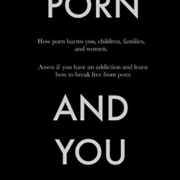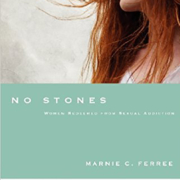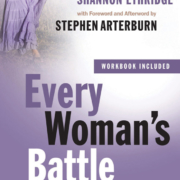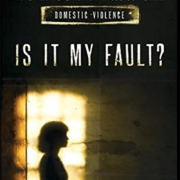 In this self-published little book, Porn and You, author John Wong goes into a helpful discussion of pornography. He divides his discussion into two parts. The first part deals with what porn is and its harmful effect on you, your relationships to your children, spouse, and, just as importantly, your attitude towards women in general. Part Two takes one through the evaluation of whether you have an addiction to porn. Then Mr. Wong goes into a discussion of how to break free from this addiction. Lastly he concludes with a brief listing of on-line resources that one might find useful.
In this self-published little book, Porn and You, author John Wong goes into a helpful discussion of pornography. He divides his discussion into two parts. The first part deals with what porn is and its harmful effect on you, your relationships to your children, spouse, and, just as importantly, your attitude towards women in general. Part Two takes one through the evaluation of whether you have an addiction to porn. Then Mr. Wong goes into a discussion of how to break free from this addiction. Lastly he concludes with a brief listing of on-line resources that one might find useful.
He encourages “meaningful engagement with our children on topics of human sexuality.”
In Part One Mr. Wong goes into a detailed discussion of “how porn harms” you in a variety of ways (psychologically, physically [Did you know that you can ‘break’ your penis?], and relationally). He also delves into the sordid and harmful issue of child porn, sexting and non-mainstream sexual behavior. He includes a plea to protect children by parents monitoring their child’s internet use. He encourages “meaningful engagement with our children on topics of human sexuality.” (p. 41)
Mr. Wong also deals with the harm it does to the performers of porn — a topic I have seldom heard discussed. The author quotes a number of “performers” and brings to life the very real harm that was done to them, both male and female.
In Part Two, “How to go porn free”, Mr. Wong spells out how to tell if you have an addiction to porn and if you do, he gives a number of helpful directions to free oneself from this addiction.
Throughout this little book Mr. Wong provides footnotes that are informative and enhances the point he is trying to make. For instance on page 47, he gives a footnote that identifies a book written by a former porn star, Jenna Jameson, and from which he pulls a lengthy quote. In addition the numerous quotes from a variety of people bring the harm of porn to life.
One thing lacking (from a Christian perspective) is the absence of Scriptural references. But then again, Mr. Wong, makes no specific references to God’s morality as a reason to seek release from porn’s addiction. He argues instead from the perspective of the psychological and physical harm that is done. All in all anyone will find this book informative and helpful.
Reviewer: Rev. John F. Boehringer
Review Date: February 2015



 This book is a serious, thorough resource for women struggling with sexual addiction. It gives a realistic view of the problems of women’s addiction, noting the ways it differs from men’s. In the book, No Stones: Women Redeemed from Sexual Addiction, Marnie Ferree doesn’t offer quick fixes but she does guide the reader toward hope and recovery.
This book is a serious, thorough resource for women struggling with sexual addiction. It gives a realistic view of the problems of women’s addiction, noting the ways it differs from men’s. In the book, No Stones: Women Redeemed from Sexual Addiction, Marnie Ferree doesn’t offer quick fixes but she does guide the reader toward hope and recovery.
 This book attempts to cover sexual and emotional issues effecting women. It’s easy to read and deals with sound principles based on Scripture. The book emphasizes that women struggle with sexual sins just as men do, but in different ways. The author points to the daily need to fight to live as children of God.
This book attempts to cover sexual and emotional issues effecting women. It’s easy to read and deals with sound principles based on Scripture. The book emphasizes that women struggle with sexual sins just as men do, but in different ways. The author points to the daily need to fight to live as children of God.
 The book begins by defining abuse as “not necessarily physical.” Emotional abuse can be just as damaging – and at times more so. Ethicist Wolfgang Huber argues that “violence is better defined as the intent to hurt or torture, more than physical injury. Violence is the unrelenting assault on human dignity.”
The book begins by defining abuse as “not necessarily physical.” Emotional abuse can be just as damaging – and at times more so. Ethicist Wolfgang Huber argues that “violence is better defined as the intent to hurt or torture, more than physical injury. Violence is the unrelenting assault on human dignity.”